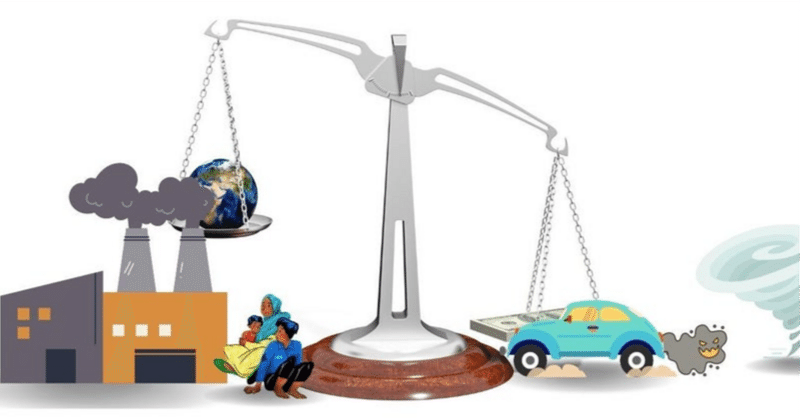
Photo by
studyfan
田中正造伝記66(日本語と英語)
最終章
日本と公害~昭和、平成、そして令和
田中正造没後、様々な媒体や様々な人々により、彼の評伝が世に出ました。
なかでも木下尚江が書いた
「政治の破産者・田中正造」は
正造の臨終を見届けた人間による
著書として、その後の正造を扱った書物や、映像作品に多大な影響を与えました。
さて、大正時代は大日本帝国にとって栄光と挫折の時代であり、一般の人々にとっては、大衆文化の発展と政治の民主化への渇望に溢れた時代でもありました。
きっかけは1914年に勃発した
「第一次世界大戦」でした。
この大戦において大日本帝国は、
アメリカ合衆国とともに主戦場となったヨーロッパとそれらの植民地に対しての兵站の役割を担い、それにより
「戦争バブル」とも言うべき膨大な利益を得ました。
そうして日本国内に集まった資金が、投機の対象のモノに群がり、特に米の買い占め、売り惜しみが起こり、
富山県を震源地に米屋をうち壊す暴動が全国に勃発しました。
世にいう
「米騒動」です。
警察はこれらの暴動を抑えられず、
軍隊によってようやく鎮圧しましたが、当時の寺内正毅(てらうち・まさたけ)内閣は責任をとる形で総辞職しました。
国民の不満はやがて選挙制度の民主化、つまり普通選挙制度の導入論に傾いていきました。
しかし、寺内の後に総理大臣となった
原敬(はら・たかし)は、制限選挙の緩和(納税額の大幅引き下げ)は認めたものの、普通選挙制度の導入には最後まで反対し続けました。
それが1921年11月4日に現職の総理大臣が暗殺されるという前代未聞の事件へと繋がったのです。
では、この時代は公害がなかったのか?
そんな事はありません。
ただ、国民的な関心事としては比重が限りなく軽くなったという事です。
この時の国民の関心はあくまで普通選挙制度の導入だったと言う事です。
ついに政府も重い腰を上げて、
1925年に普通選挙法を制定しました。
しかし、この時期に生まれたソビエト連邦に触発された社会主義運動を取り締まる為、「治安維持法」も制定しました。
取り締まりは出版物にも及び、
「政治の破産者・田中正造」もその対象となりました。
Final chapter
Japan and Pollution:The Showa, Heisei, and Reiwa Era
After Shozo Tanaka's death, his biography has been published in various media and by various people.
Among them, "Shozo Tanaka, Bankrupt in Politics, " written by Naoe Kinoshita, a book by a person who witnessed Shozo's deathbed, had a tremendous impact on subsequent books and films about Shozo.
Now, the Taisho Era was a time of glory and setbacks for the Empire of Japan, and for ordinary people, it was a time full of thirst for the development of popular culture and the democratization of politics.
They were triggered by World War〡, which broke out in 1914.
In this war, the Empire of Japan, along with the United States of America, took on the role of logistics for Europe and its colonies, which were main battlegrounds, and through this, it gained enormous profits that could be called a "war bubble".
The money gathered in Japan flocked to speculative products, especially rice, which was bought up and sold sparingly, and riots broke out across the country, with Toyama Prefecture as the epicenter.
This is known as the "rice riot".
The police were unable to suppress these riots, which were finally put down by the military, but the cabinet of Masatake Terauchi at the time resigned in order to take responsibility.
Public dissatisfaction eventually tended toward the democratization of the electoral system, in other words, the theory of introducing a universal suffrage system.
However,Hara Takashi, who became prime minister after Terauchi, continued to oppose the introduction of a universal suffrage system to the very end, although he approved the relaxation of limited elections (a significant reduction in tax payments).
This led to the unprecedented assassination of the incumbent prime minister on November 4, 1921.
So was there no pollution in this period?
No, there was not.
It just meant that as a matter of national concern, its specific weight had become infinitely lighter.
The public's interest at this time was solely in the introduction of a universal suffrage system.
Finally,the government did the heavy lifting and enacted the Regular Election Law in 1925.
However, it also enacted a "Security Law" to crack down on the socialist movement inspired by the Soviet Union, which was born during this period.
The government crackdown also extended to publications, including "Shozo Tanaka, a political bankrupt".
この記事が気に入ったらサポートをしてみませんか?
